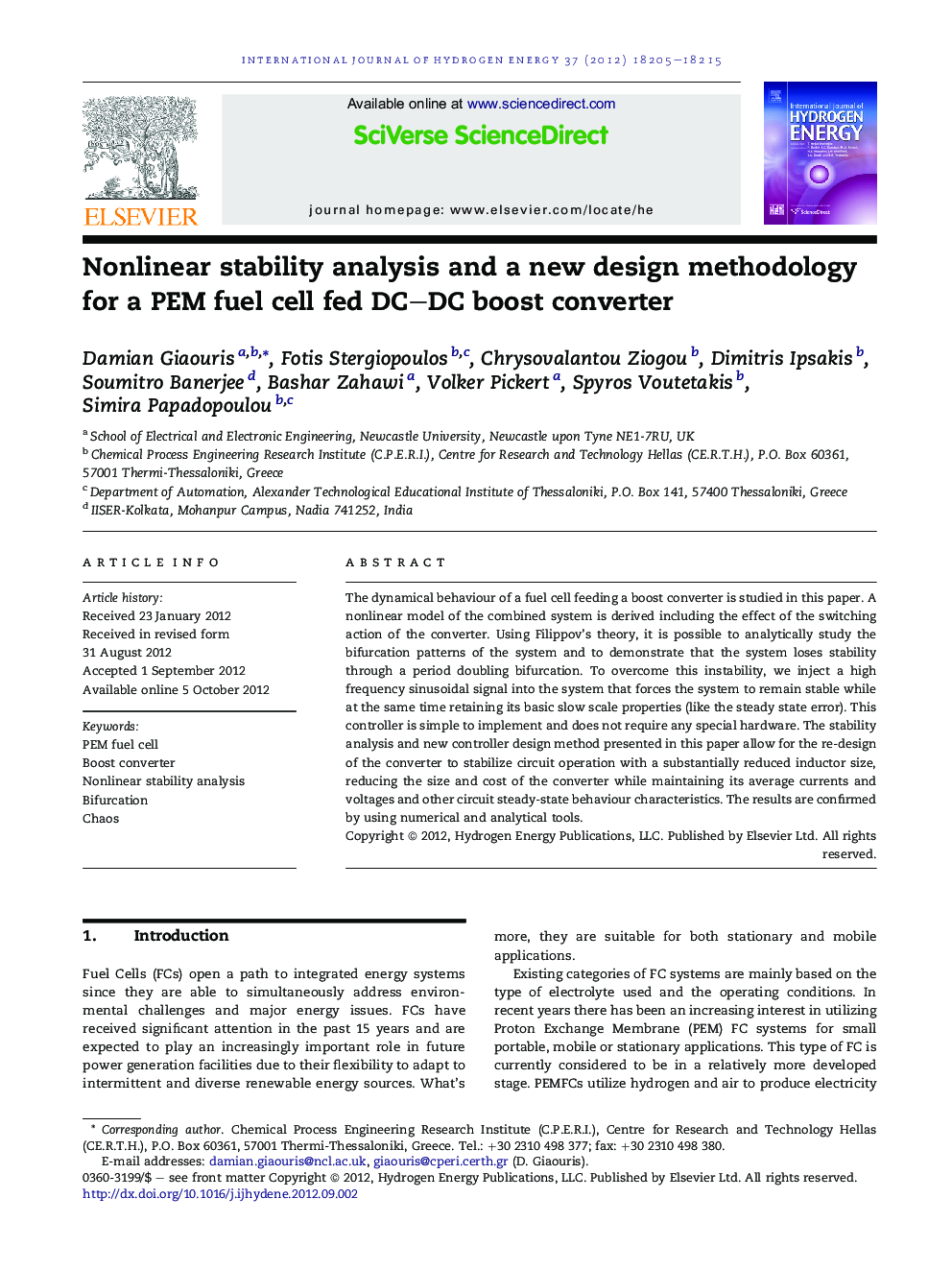| Article ID | Journal | Published Year | Pages | File Type |
|---|---|---|---|---|
| 1278339 | International Journal of Hydrogen Energy | 2012 | 11 Pages |
The dynamical behaviour of a fuel cell feeding a boost converter is studied in this paper. A nonlinear model of the combined system is derived including the effect of the switching action of the converter. Using Filippov's theory, it is possible to analytically study the bifurcation patterns of the system and to demonstrate that the system loses stability through a period doubling bifurcation. To overcome this instability, we inject a high frequency sinusoidal signal into the system that forces the system to remain stable while at the same time retaining its basic slow scale properties (like the steady state error). This controller is simple to implement and does not require any special hardware. The stability analysis and new controller design method presented in this paper allow for the re-design of the converter to stabilize circuit operation with a substantially reduced inductor size, reducing the size and cost of the converter while maintaining its average currents and voltages and other circuit steady-state behaviour characteristics. The results are confirmed by using numerical and analytical tools.
► Stability analysis including the effect of switching in DC–DC converters fed by fuel cells. ► Derivation of the full nonlinear model of the fuel cell/boost converter/PI controller/Peak controller. ► Supervising controller development, that ensures stable operation. ► New design methodology for boost converters, which results in lighter and cheaper systems.
